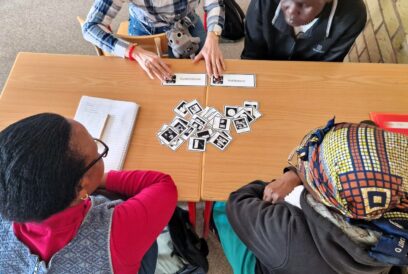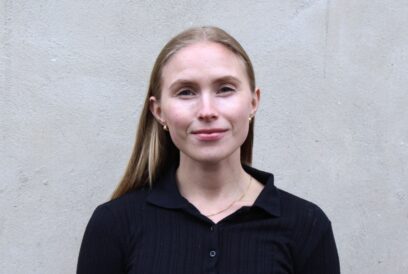

Skills such as adaptability, abstract thinking, interdisciplinarity or imagination will always be needed and form a solid basis for lifelong learning, futurist Perttu Pölönen argues. Photo: Perttu Pölönen
Skills such as adaptability, abstract thinking, interdisciplinarity or imagination will always be needed and form a solid basis for lifelong learning, futurist Perttu Pölönen argues. Photo: Perttu Pölönen
How does a futurist view lifelong learning? We talked to Perttu Pölönen about the effects of e-learning, the changing role of validation and the skills that separate us from machines.
Perttu Pölönen is a Finnish futurist with a particular interest in the future of working life and the skills needed for it.
Although originally a classically trained composer by education, 26-year-old Pölönen became an entrepreneur at a young age and cultivated a strong interest in questions of technology and learning.
He then went on to study themes such as megatrends, disruption, emerging technologies and exponential mindset at Singularity University, an American education company located in Silicon Valley, California.
Due to new technology, Pölönen argues, people are becoming less and less dependent on traditional educational institutions. The key question he poses is: what can schools, universities and education centres offer that people cannot access on the internet?
2020 was the year of learning via digital platforms. How do you perceive the possibilities and risks of e-learning in the coming years?
“It is important to remember that technology itself is neither good nor bad. Whilst remote learning can be great in certain contexts, it is important to acknowledge it does not suit all learning situations and the individual needs of learners.
When learning via a screen, we are lacking elements such as touch, looking someone directly in the eye and lots of other nuances in communication. Learning essential skills such as empathy or bravery might be difficult to do online – and I am not sure if they even ought to be taught online, to be honest.
What would a test on patience look like?
At the same time, many people have achieved better learning results during the pandemic and felt like they have been able to focus more when studying online without external distractions. I am interested in how this will be considered in the future.”
How do you think the role of validation in learning will change in the future?
“I have been thinking about this question a lot whilst visiting Myanmar, where I have been involved in an education project. Soon, if not already, the schools and education providers in developing countries might not be able to offer the same quality of courses as those offered for free online.
But local young people still feel like they must go to a local school, because that is the only way to get a diploma or certification that they need to get a job.
Moreover, validation will become generally more difficult, as we progress into so-called “softer skills”. It is not easy to assess things such as curiosity, courage or empathy – and yet these are the skills we will most certainly need in the future. What would a test on patience look like?
For a long time, assessing skills has meant comparison with others; your value has been based on whether you did worse or better than the rest. With “softer” future skills, this will no longer work – we have to come up with something different.”
What about professions that are not directly linked to these types of abstract skills? We will need waiters and caretakers in the future too, won’t we?
“Of course – most likely there will always be a need for care work and people doing this work. But even within the care sector, more and more tasks will be performed by machines in the future. So, in the job of, say, a nurse or doctor, the skills that will be critical are those that the machine cannot do. And this, again, comes back to things such as patience, empathy, communication, nurturing and comforting. In other words, being as human as possible.
The things that separate us from the machines are also the things that make us happy.
Moreover, whilst highly specialising in something can be valuable, it is also quite risky. Coding, for example, is very hot right now, but in the next decades machines might be able to write code themselves. Speaking Mandarin Chinese is a sought-after skill now, but it probably won’t take long before machines can interpret spoken language well enough for us.
You talk a lot about the skills needed for future work. Are they more important than skills for life?
“In fact, I think that the skills needed for work and skills needed for life will grow closer to each other in the future.
Skills such as adaptability, abstract thinking, interdisciplinarity or imagination will always be needed. They form a solid basis for lifelong learning.
When studying in Silicon Valley, I asked a well-known futurist what I should study. I was 21 years old and expected him to recommend disciplines such as synthetic biology or blockchain technology. But instead, he said that a good place to start would be studying philosophy or art.
Concepts such as philosophy and art are the things that machines cannot take from us. And it seems to me that the things that separate us from the machines are also the things that make us happy.”
Perttu Pölönen
- Finnish futurist, inventor and author
- a classically trained composer, graduated from Sibelius Academy in Finland
- has written two books: Future Skills and Future Identities
- co-founded 360ed, a non-profit organisation that creates augmented reality education apps
Author







